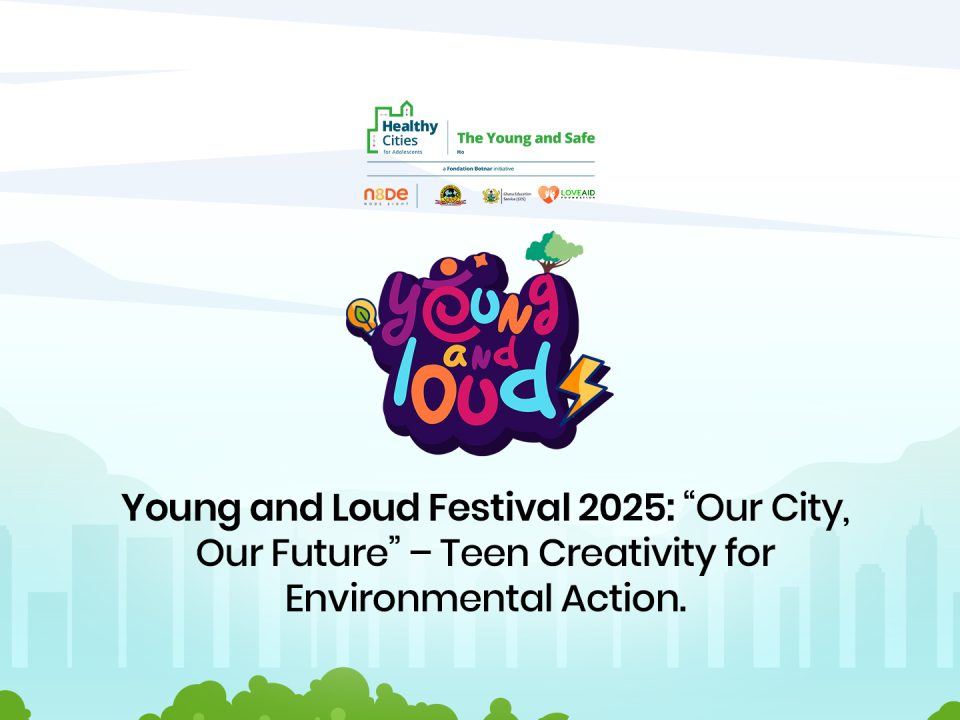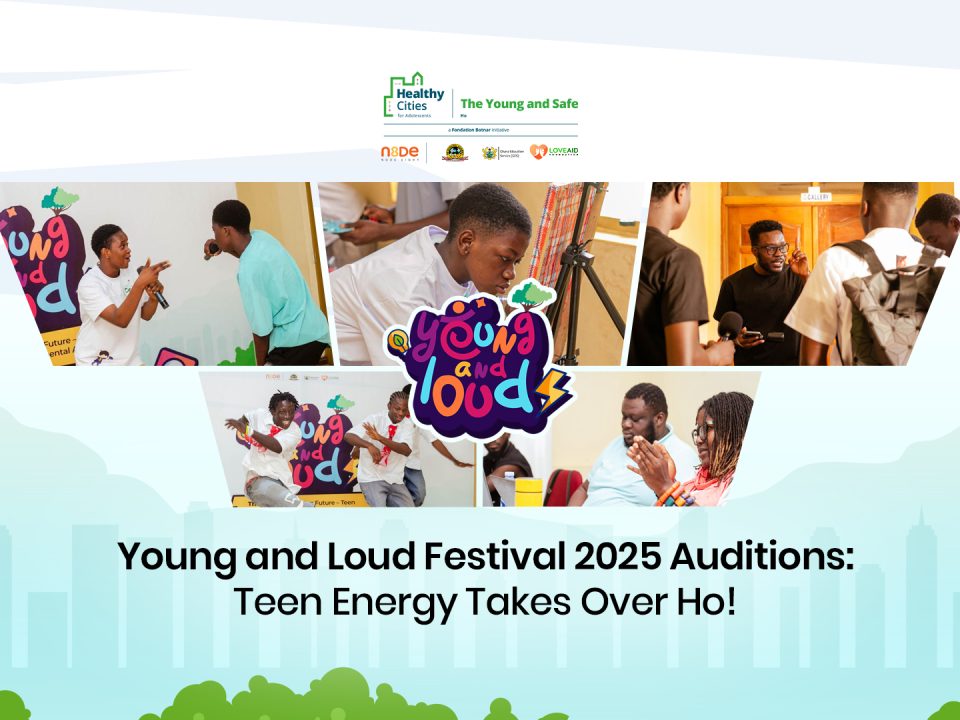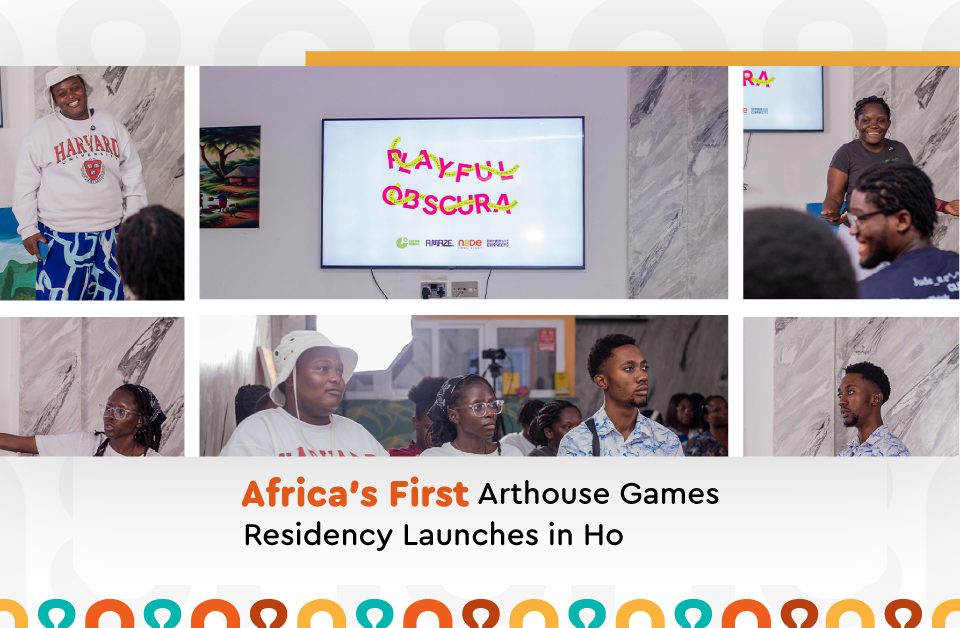What does the future of work look like and how do you prepare for it
August 26, 2020Node Hub to host the maiden Ho Startup Summit
September 7, 2020Node Hub Foundation, an innovation Hub in Ho over the weekend, trained 30 leaders of Non-governmental Organizations (NGOs) that work closely with youth, women, and disable in the Ho Municipality. The purpose of the training program was to build the capacity of these NGOs on how to effectively advocate and support their beneficiaries/members to access their economic rights and improve livelihoods.
The training program is part of a larger project developed by the Social Enterprise Ghana and Reach for Change, Ghana, and supported by ForumSyd (Now ForumCIV) a politically and religiously unaffiliated development cooperation organisation with around 140 member civil society organisations in Sweden.
 The training event was held at the Hub’s premises on Saturday, August 29, 2020, from 10: 00 AM to 12: 30PM. The organizations present included; McGharbins Network, Ghana National Tailors & Dress Makers Association, LifeMAcNetwork Foundation, Kekeli Foundation, Zena Foundation, Rotaract Club, Emethlove Foundation, Viviana Lebenam Foundation, Ho Sentinel Leo Club, Geohebeth Lines, Eclectic Love, Enamored Foundation, Life Mentoring Contact, National Hair Dressers and Beautician, Impact for Change Network Ghana, Coalition of Civil Society championing SDGs in Ho, and Ripplewaves.
The training event was held at the Hub’s premises on Saturday, August 29, 2020, from 10: 00 AM to 12: 30PM. The organizations present included; McGharbins Network, Ghana National Tailors & Dress Makers Association, LifeMAcNetwork Foundation, Kekeli Foundation, Zena Foundation, Rotaract Club, Emethlove Foundation, Viviana Lebenam Foundation, Ho Sentinel Leo Club, Geohebeth Lines, Eclectic Love, Enamored Foundation, Life Mentoring Contact, National Hair Dressers and Beautician, Impact for Change Network Ghana, Coalition of Civil Society championing SDGs in Ho, and Ripplewaves.
Miss Rosemond Yaa Kpeiku, the Community Associate of Node Hub, led the participants in a workshop to identify and map State Agencies with resources that can be beneficial to their members or beneficiaries. Mr. Courage Asase, the Programs Manager of Node Hub, led the second session of the training. His session focused on how the NGOs should draft an advocacy plan to engage the appropriate duty bearers. He stressed on the need for the NGOs to shun working in silos, instead form alliances when engaging state agencies. A representative from the Coalition of CSOs championing SDGs in Ho shared how their platform has helped members to get access to some of the duty bearers via the Coalition’s letterhead. He encouraged other organizations present to join their platforms to buttress Mr. Asase's point.
The participants identified the lack of a structured source to access information on government policies/programs, which are beneficial to their members as the major challenge working with the state agencies. The National Board of Small Scall Industries (NBSSI) however was highly commended as the most proactive institution that supports women and vulnerable people in Ho. NBSSI frequently shared training and funding opportunities with NGOs and SEs. The participants challenged other state agencies to be more proactive in engaging Social Enterprises (SEs) and non-governmental agencies in their community. The media was also commended for its role in driving real policy change campaigns and holding duty bearers accountable. Mr. Malm, CEO of Viviana Lebenan Foundation, a social enterprise focused on helping visually impaired persons shared how helpful the media has been in helping them access the Disability Common Fund. He encouraged social enterprises to team up with the media when advocating for change in the national policy.
As a closing remark, Miss Kpeiku touched on the need for NGOs to build safe and inclusive spaces for women, youth, and the disabled. She encouraged the participants to move beyond empowerment to the deliberate engagement of the vulnerable in our community so they feel they belonged.
The next phase of the project is a policy dialogue, which would bring the trained organizations and identified state agencies on one platform. The policy dialogue would be held on September 26, 2020, at the Node Hub premises.
The training program is part of a larger project developed by the Social Enterprise Ghana and Reach for Change, Ghana, and supported by ForumSyd (Now ForumCIV) a politically and religiously unaffiliated development cooperation organisation with around 140 member civil society organisations in Sweden.
 The training event was held at the Hub’s premises on Saturday, August 29, 2020, from 10: 00 AM to 12: 30PM. The organizations present included; McGharbins Network, Ghana National Tailors & Dress Makers Association, LifeMAcNetwork Foundation, Kekeli Foundation, Zena Foundation, Rotaract Club, Emethlove Foundation, Viviana Lebenam Foundation, Ho Sentinel Leo Club, Geohebeth Lines, Eclectic Love, Enamored Foundation, Life Mentoring Contact, National Hair Dressers and Beautician, Impact for Change Network Ghana, Coalition of Civil Society championing SDGs in Ho, and Ripplewaves.
The training event was held at the Hub’s premises on Saturday, August 29, 2020, from 10: 00 AM to 12: 30PM. The organizations present included; McGharbins Network, Ghana National Tailors & Dress Makers Association, LifeMAcNetwork Foundation, Kekeli Foundation, Zena Foundation, Rotaract Club, Emethlove Foundation, Viviana Lebenam Foundation, Ho Sentinel Leo Club, Geohebeth Lines, Eclectic Love, Enamored Foundation, Life Mentoring Contact, National Hair Dressers and Beautician, Impact for Change Network Ghana, Coalition of Civil Society championing SDGs in Ho, and Ripplewaves.Miss Rosemond Yaa Kpeiku, the Community Associate of Node Hub, led the participants in a workshop to identify and map State Agencies with resources that can be beneficial to their members or beneficiaries. Mr. Courage Asase, the Programs Manager of Node Hub, led the second session of the training. His session focused on how the NGOs should draft an advocacy plan to engage the appropriate duty bearers. He stressed on the need for the NGOs to shun working in silos, instead form alliances when engaging state agencies. A representative from the Coalition of CSOs championing SDGs in Ho shared how their platform has helped members to get access to some of the duty bearers via the Coalition’s letterhead. He encouraged other organizations present to join their platforms to buttress Mr. Asase's point.
The participants identified the lack of a structured source to access information on government policies/programs, which are beneficial to their members as the major challenge working with the state agencies. The National Board of Small Scall Industries (NBSSI) however was highly commended as the most proactive institution that supports women and vulnerable people in Ho. NBSSI frequently shared training and funding opportunities with NGOs and SEs. The participants challenged other state agencies to be more proactive in engaging Social Enterprises (SEs) and non-governmental agencies in their community. The media was also commended for its role in driving real policy change campaigns and holding duty bearers accountable. Mr. Malm, CEO of Viviana Lebenan Foundation, a social enterprise focused on helping visually impaired persons shared how helpful the media has been in helping them access the Disability Common Fund. He encouraged social enterprises to team up with the media when advocating for change in the national policy.
As a closing remark, Miss Kpeiku touched on the need for NGOs to build safe and inclusive spaces for women, youth, and the disabled. She encouraged the participants to move beyond empowerment to the deliberate engagement of the vulnerable in our community so they feel they belonged.
The next phase of the project is a policy dialogue, which would bring the trained organizations and identified state agencies on one platform. The policy dialogue would be held on September 26, 2020, at the Node Hub premises.



